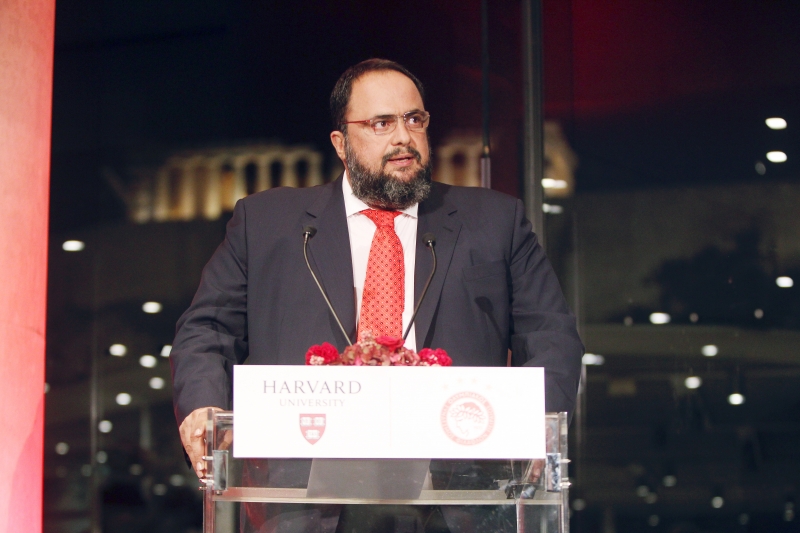Olympiacos is used to being a pioneer when it comes to matters of Corporate Social Responsibility and solidarity to fellow humans. Under Mr. Evangelos Marinakis’ guidance, our Club’s social activates are strengthened. In this context, a major role is played by “The Athens Principle”, which was drafted ad signed first by Mr. Marinakis, in collaboration with Harvard University!
Less than a year ago, it was in the very birthplace of civilization, Greece, and under the shadow of Acropolis where members of the academia around the world were hosted by Olympiacos FC.; no discriminations, no separations or borders; it is from something deriving from humans and addressed back to them, for the love of sports, for being able to offer and stand by, for unity and a better future; for providing all children of this world with a legacy -both athletic and not- to carry on such ventures.
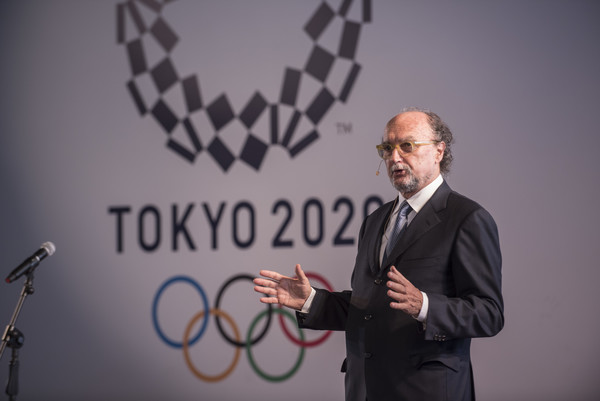
AIPS (Association Internationale de la Presse Sportive in French or International Press Sports Association in English) constitutes the last major athletic body (since it is no club or tournament) to substantially advocate “The Athens Principle” that was first signed by Olympiacos’ head! AIPS President Mr. Gianni Merlo signed “The Athens Principle on the Right to Participate in Sports” and thus sent his own message of support to Mr. Marinakis’ initiative.
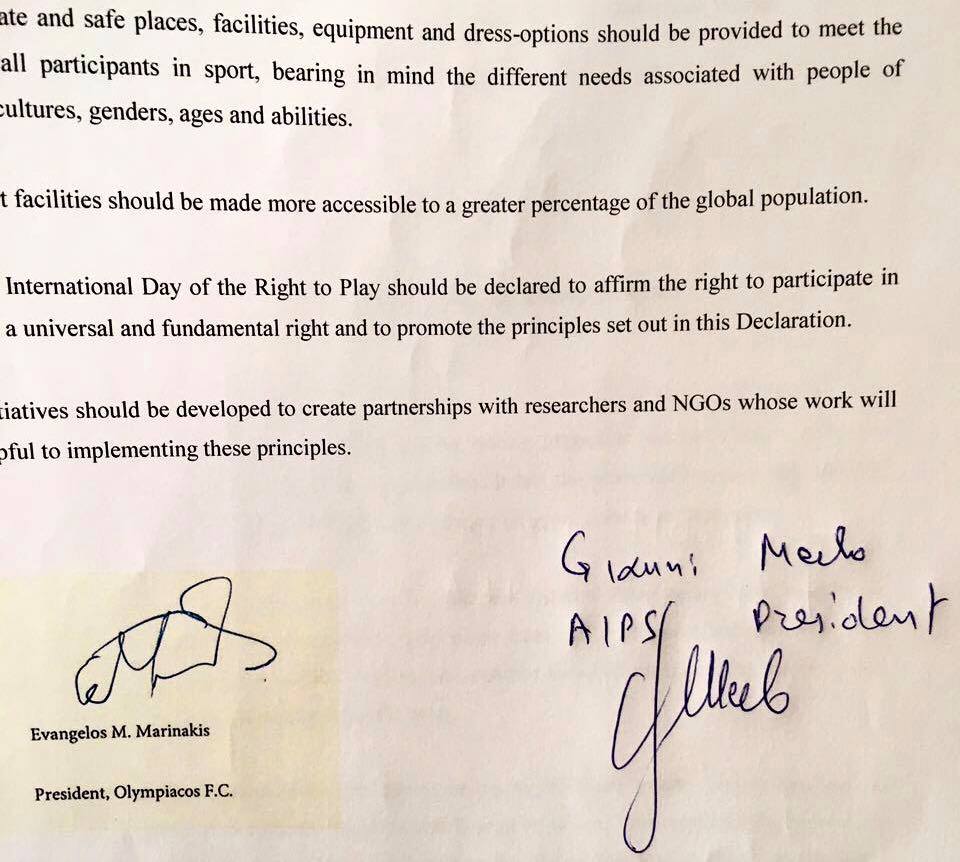
Since that magnificent evening, under the shadow of Acropolis, during which Olympiacos went public about their effort, in partnership with Harvard University, to build a world where everyone will be entitled to participate in sports, with no limits and constraints, we had a beautiful journey. Barcelona, Sporting CP, Turkish Airlines Euroleague, Real Madrid, Fenerbahce and other top clubs from European sports cosigned it and thus sent a message: This initiative taken by Mr. Evangelos Marinakis and the efforts paid by the University of Harvard, will not be in vain!
The objective of both Olympiacos and Harvard University is get this message across around the world; this is exactly why said efforts will continue, so that sports become the basis for a better world, build on foundations more adequate and robust. Mr. Marinakis continues his own struggle, not merely for making Olympiacos an even bigger sports club, but also a role model in matters of CSR and solidarity to our fellow-humans.
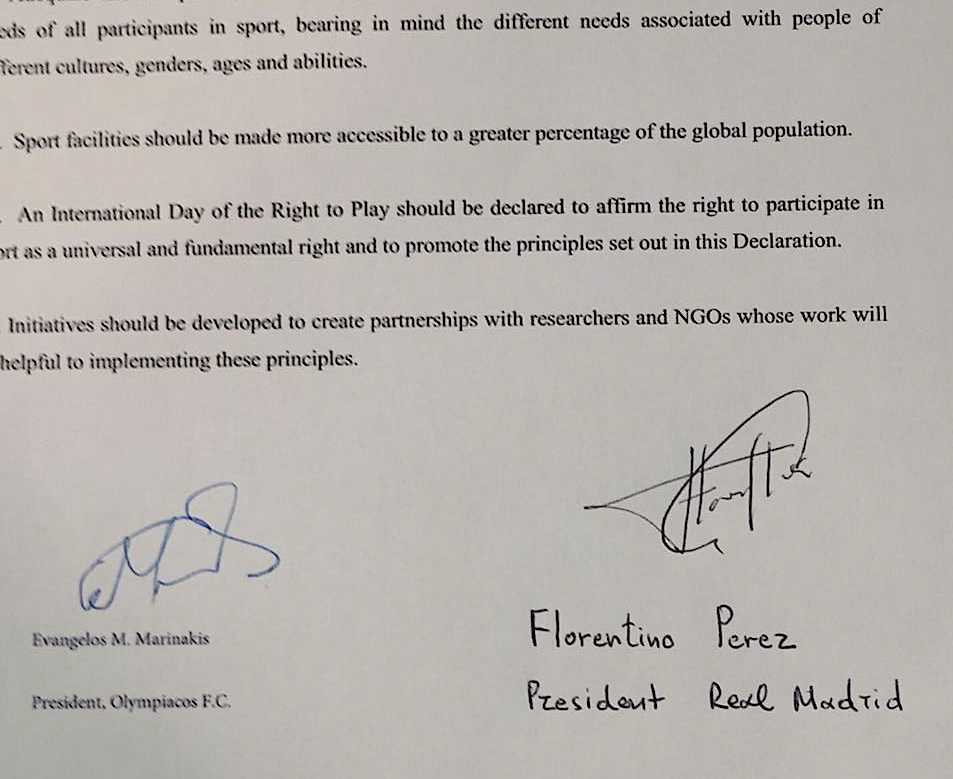
This is to remind you of “The Athens principle”, as drafted and signed first by Mr. Evangelos Marinakis:
Reinforcing, Crossing, and Transcending Borders: Soccer in a Globalized World
Weatherhead Initiative on Global History, Harvard University
Supported by Simmons College, Boston, MA Hosted by Olympiacos F.C. in Athens, Greece
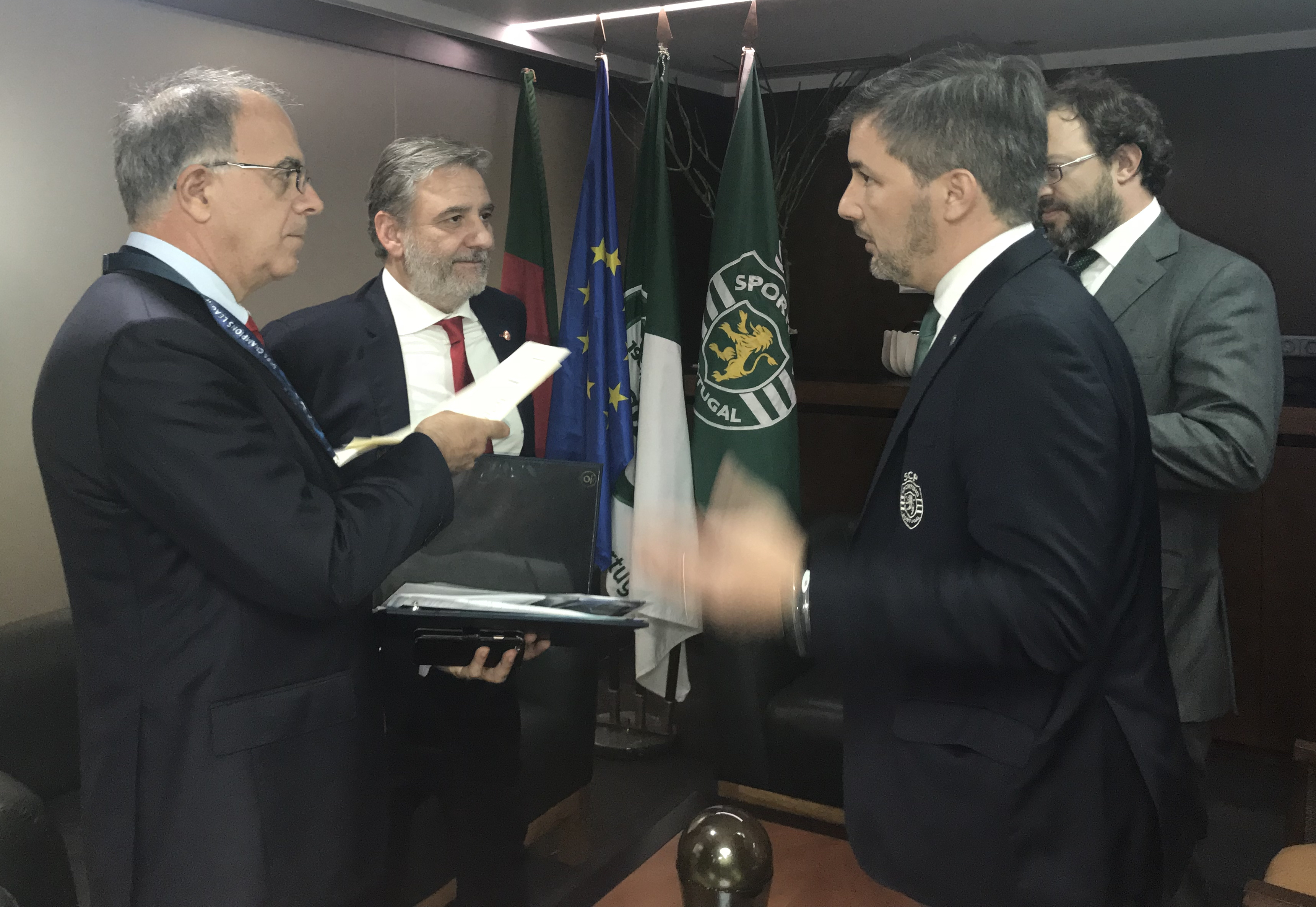
The Athens Principles on the Right to Participate in Sport,
Preamble
Sport provides life skills and values that have a long lasting impact on people’s lives. It builds confidence, inspires youth, and helps overcome prejudice. It has the power of transcending borders and bringing people together, regardless of their race, gender, religion, culture or nationality.
The sport industry has grown significantly over the last few decades. Sport teams have worldwide followings and passionate groups of supporters who come from different social backgrounds. This broad base of support contributes to clubs’ widespread presence in social media and to the increased attention that sport organizations receive from the press.
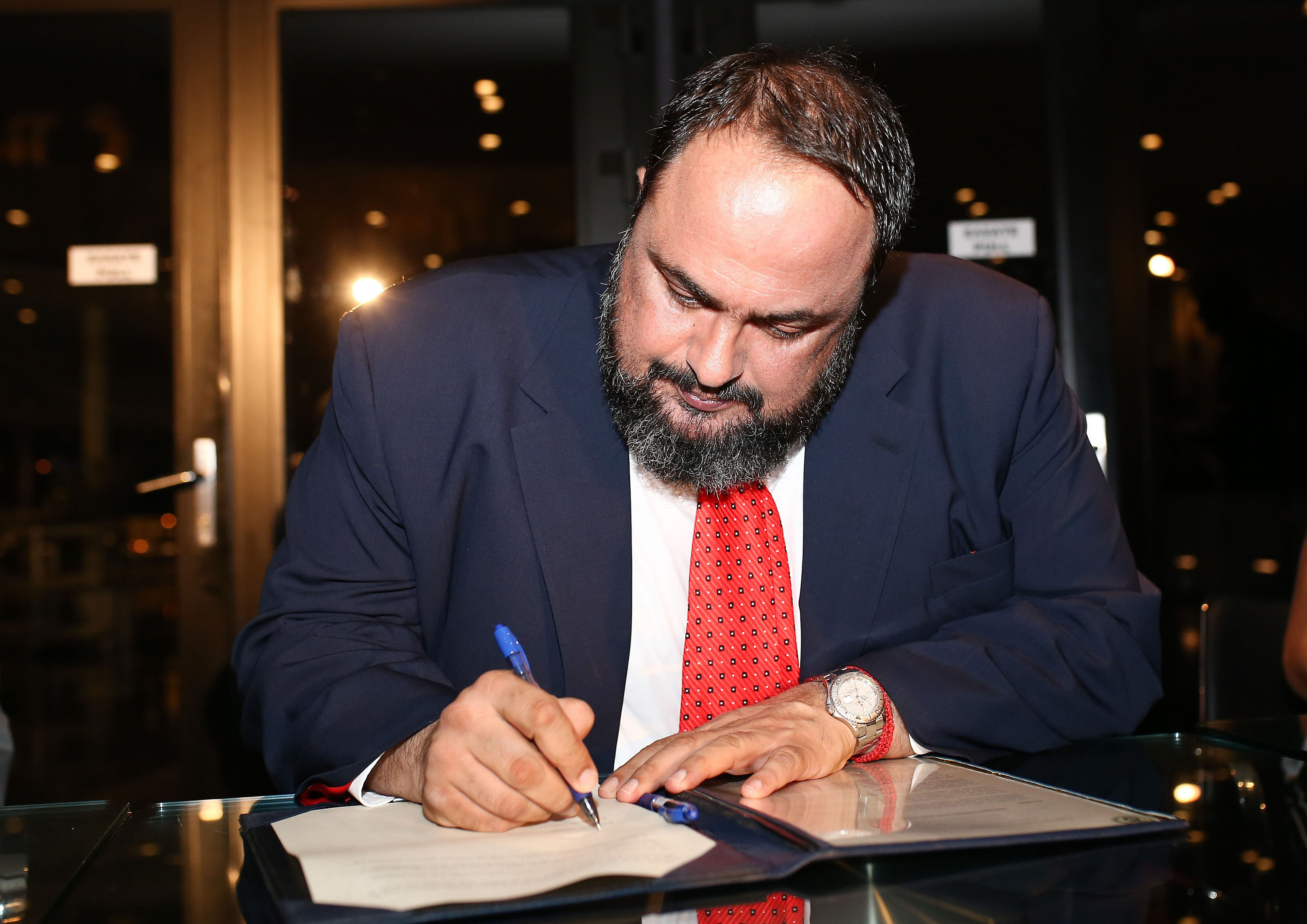
This expanded visibility enables clubs and their players to influence public discussions and to embrace the added social responsibility that comes with such influence. This responsibility extends to ensuring that as many people as possible are able to play the games they love, without encountering discrimination or prejudice.
The responsibility of clubs and their players in promoting universal participation is even more crucial at a time when the number of displaced people in the world escaping conflict or persecution has reached its highest point in history. According to the UN High Commissioner for Refugees, 20 people are displaced from their homes every minute, a high percentage of whom are unaccompanied children and disabled men and women.
In the spirit of achieving universal participation, the 2015 UNESCO Sport Charter1 reaffirms that the right to participate in sport is a fundamental right for all. However, many people in the world are still deprived of this right because of lack of opportunity, lack of access or prejudice. It is therefore the responsibility of clubs and sport associations to help extend the benefits of participation in sport to individuals in all communities, especially those who are marginalized or vulnerable.
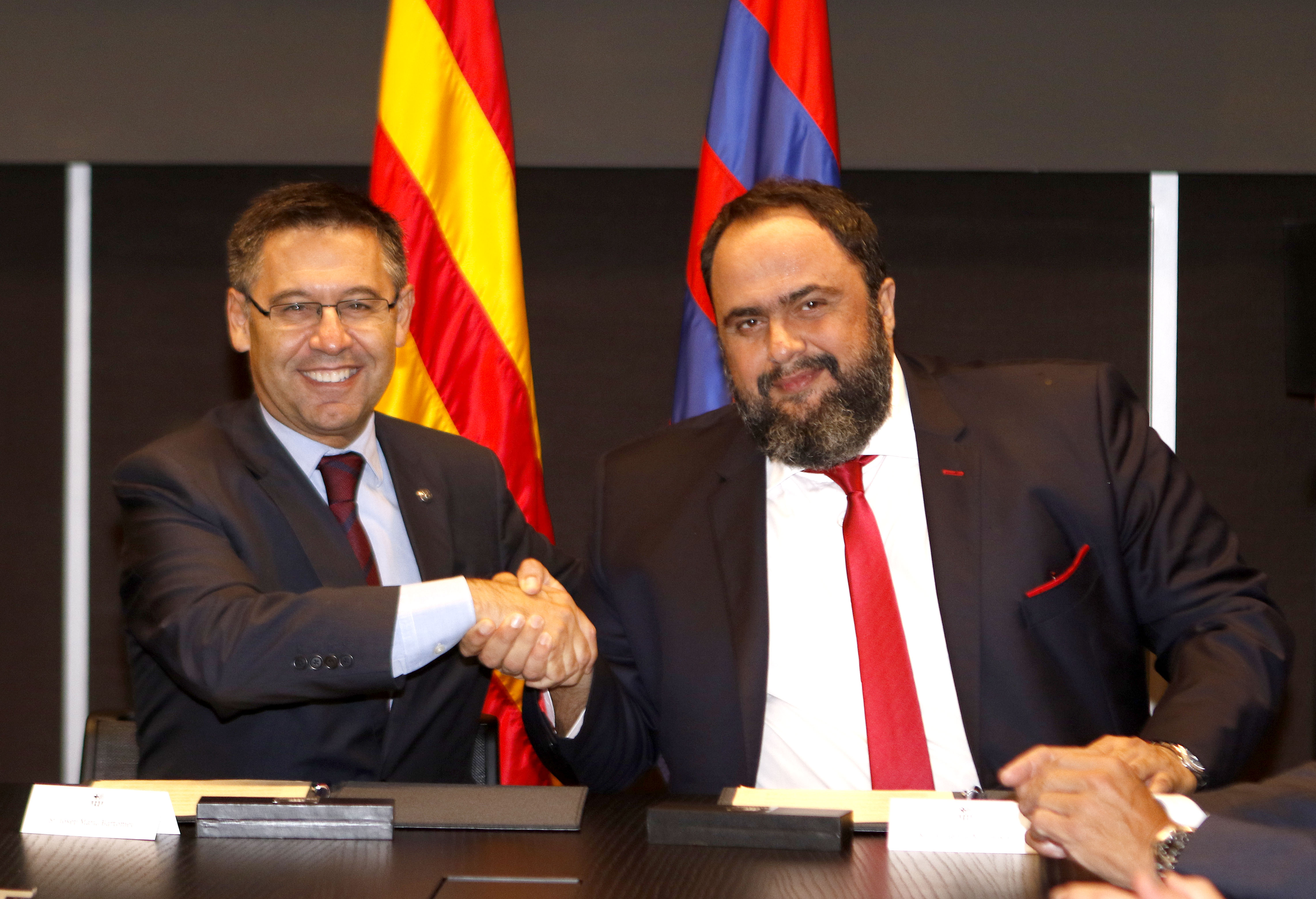
Guided by our social responsibilities and reflecting the rights and duties established in the UNESCO
Sport Charter, we agree to promote, support and implement the following 12 Principles:
1. This Declaration is a common standard of achievement for all clubs, teams, players and sports associations of all sports, to the end that every individual and company should strive, through education and example, to promote respect for these rights and to progressively secure their effective recognition and observance.
2. Every human being has a fundamental right to participate in sport without discrimination on the basis of ethnicity, gender, sexual orientation, language, religion, political or other opinion, or national or social origin. Furthermore, no distinction should be made on the basis of the political or international status of the country or territory to which a person belongs. Clubs and sport associations should actively campaign against and refuse to engage in any such discrimination at both youth and professional levels.
3. Participation in sport should be based on the principles of healthy and honest competition and respect for all competitors.
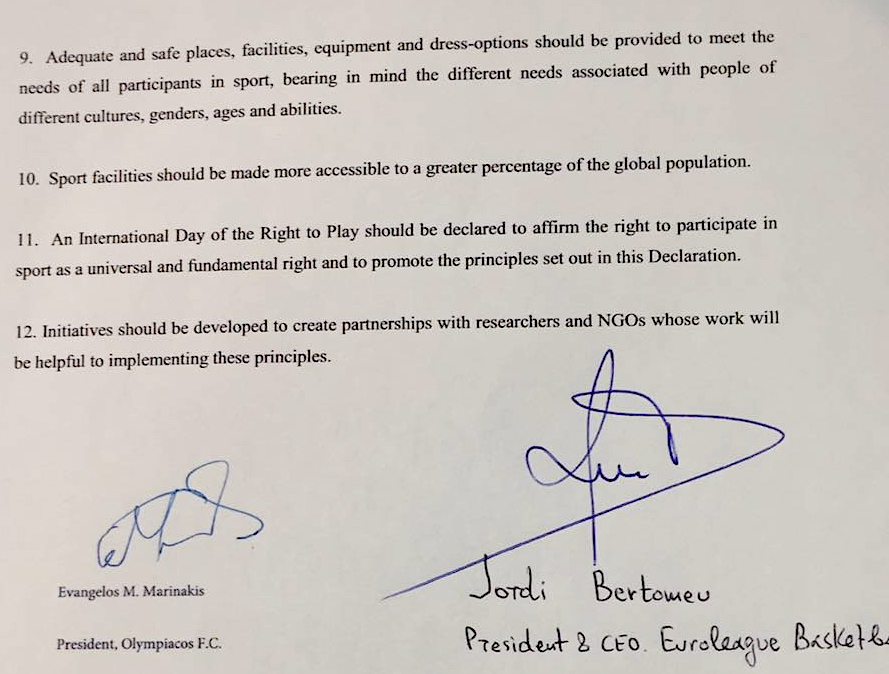
4. Initiatives that encourage the participation of displaced people, whatever their civil status, in sporting activities should be supported.
5. Sport for young people should be first and foremost about participation, physical activity and having fun.
6. Girls should have as much access to sport and sport teams as boys, particularly in school and in youth games and leagues.
7. Everyone should have equal access without discrimination to sport training, resources and services, as well as the opportunity to participate in all supervision and decision-making at all levels of sport.
8. Clubs and sport associations agree to encourage greater participation in sport in conflict ridden or economically depressed areas and, when possible, to contribute financial resources, including providing used but appropriate equipment for the use of those people who lack adequate resources to participate in sport.

9. Adequate and safe places, facilities, equipment and dress-options should be provided to meet the needs of all participants in sport, bearing in mind the different needs associated with people of different cultures, genders, ages and abilities.
10. Sport facilities should be made more accessible to a greater percentage of the global population.
11. An International Day of the Right to Play should be declared to affirm the right to participate in sport as a universal and fundamental right and to promote the principles set out in this Declaration.
12. Initiatives should be developed to create partnerships with researchers and NGOs whose work will be helpful to implementing these principles.
Evangelos M. Marinakis
President, Olympiacos F.C”
